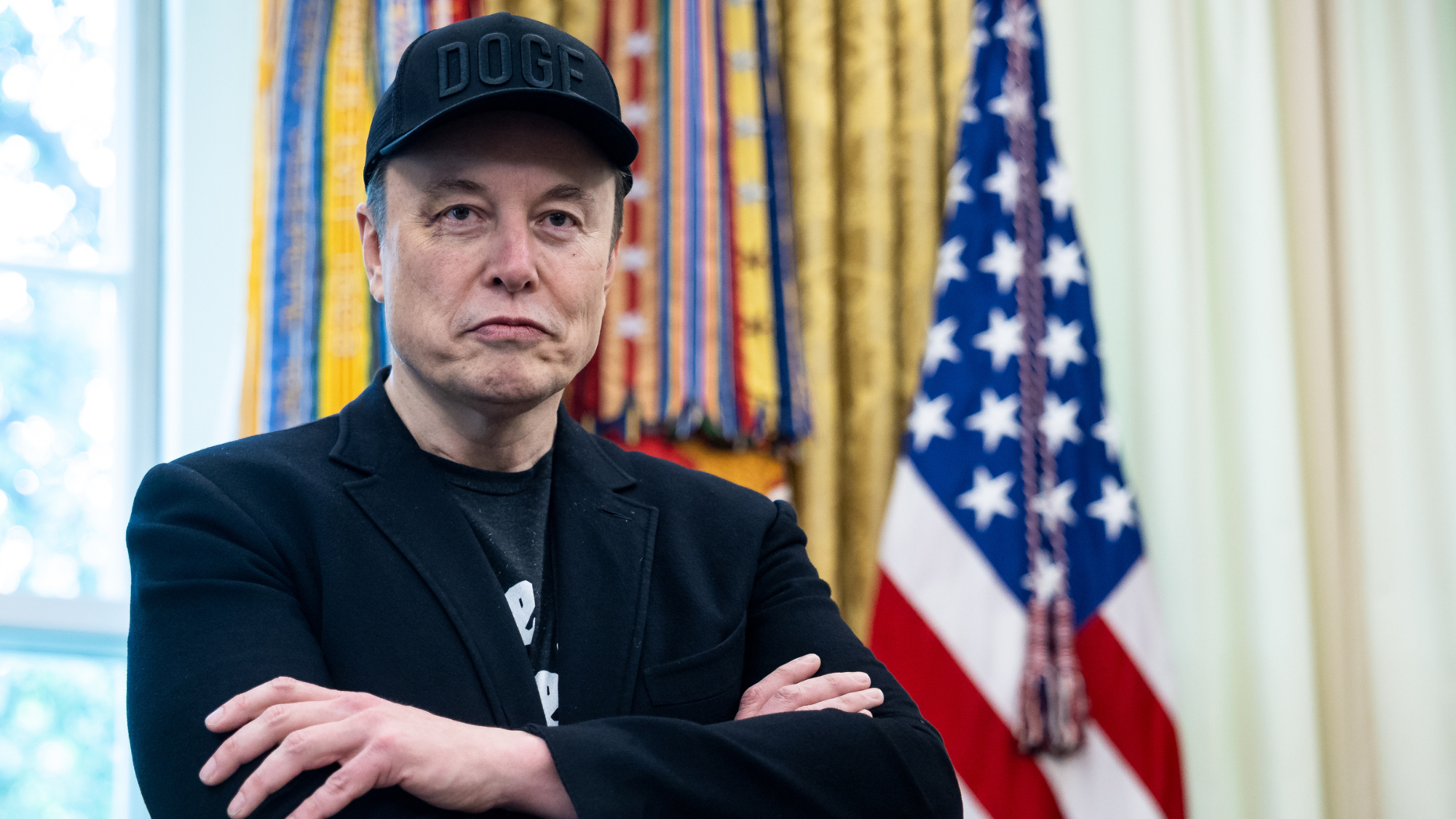Elon Musk's America Party: a billionaire's folly?
One-time Trump ally has acquired a taste for political power and clearly wants more of it

A free daily email with the biggest news stories of the day – and the best features from TheWeek.com
You are now subscribed
Your newsletter sign-up was successful
"Another angry billionaire wants his own political party," said Tom Nichols in The Atlantic. In 1996, the businessman Ross Perot sought to challenge America's political duopoly with his Reform Party. In 2007, Michael Bloomberg publicly flirted with the idea of an independent White House bid. And now along comes Elon Musk, announcing his intention to set up the "America Party".
The party will apparently speak for moderates who are fed up with the two main parties and will be dedicated to stopping wasteful federal spending. The announcement was dismissed contemptuously by Donald Trump, who said that third parties "have never succeeded in the United States" and only create "total disruption and chaos".
'Wildly unpopular'
Musk is on a hiding to nothing, said Philip Bump in The Washington Post. Having worked in the White House for a few months, he has acquired a taste for political power and clearly wants more of it. But he has apparently forgotten "about the part where he also became wildly unpopular".
The Week
Escape your echo chamber. Get the facts behind the news, plus analysis from multiple perspectives.

Sign up for The Week's Free Newsletters
From our morning news briefing to a weekly Good News Newsletter, get the best of The Week delivered directly to your inbox.
From our morning news briefing to a weekly Good News Newsletter, get the best of The Week delivered directly to your inbox.
"Chortle away if you like," said Michael Tomasky in The New Republic, but Musk might be onto something here. Previous third-party efforts have been a joke because they were based on presidential campaigns that never had any hope of succeeding, but Musk isn't bidding for the White House (he wouldn't be able to in any case, having been born outside the US). His plan is instead to win a handful of Senate and House seats in order to create a legislative faction that can exert influence in the two evenly balanced chambers. "That is doable, at least in theory."
Candidates such as Bernie Sanders have won election as independent senators. Musk's chances would be improved if there were "some serious division" within Republican ranks. Under the first-past-the-post system, third parties break through when one of the main parties starts to fall apart. That's how the Republicans won power in the first place – they were united around an anti-slavery position while the Whig Party, whom they supplanted, were split on the issue.
A smart strategy
Even Musk's detractors must admit that he has proved himself to be "an innovative problem solver", said Greg Orman on Real Clear Politics. He was the first to commercialise electric cars in a big way. His SpaceX company "ended the reign of another duopoly, Boeing and Lockheed Martin, over space transport". He's now trying to address the root cause of America's political dysfunction: a "corrupted two-party system more interested in seeing the other party fail than in seeing [the] country succeed".
While I suspect Musk's effort will "go nowhere", it's a smart strategy, said Jonah Goldberg in the Los Angeles Times. The margins are so narrow in Congress that a third-party caucus would acquire enormous leverage. Forcing politicians to "get back into the business of crossing party lines to form factional coalitions would be a very healthy improvement".
A free daily email with the biggest news stories of the day – and the best features from TheWeek.com